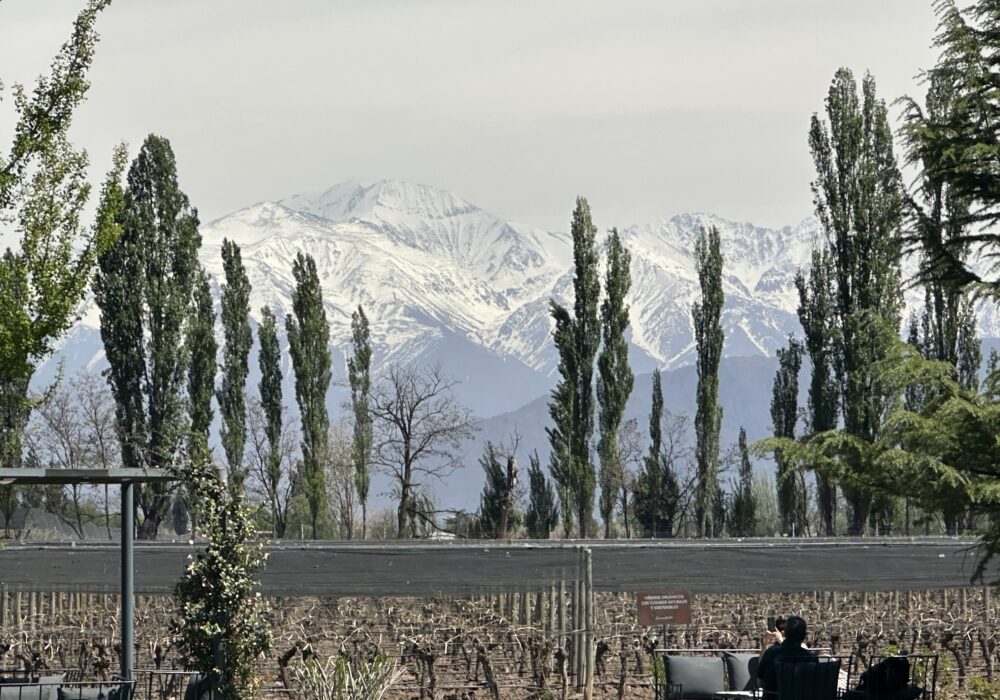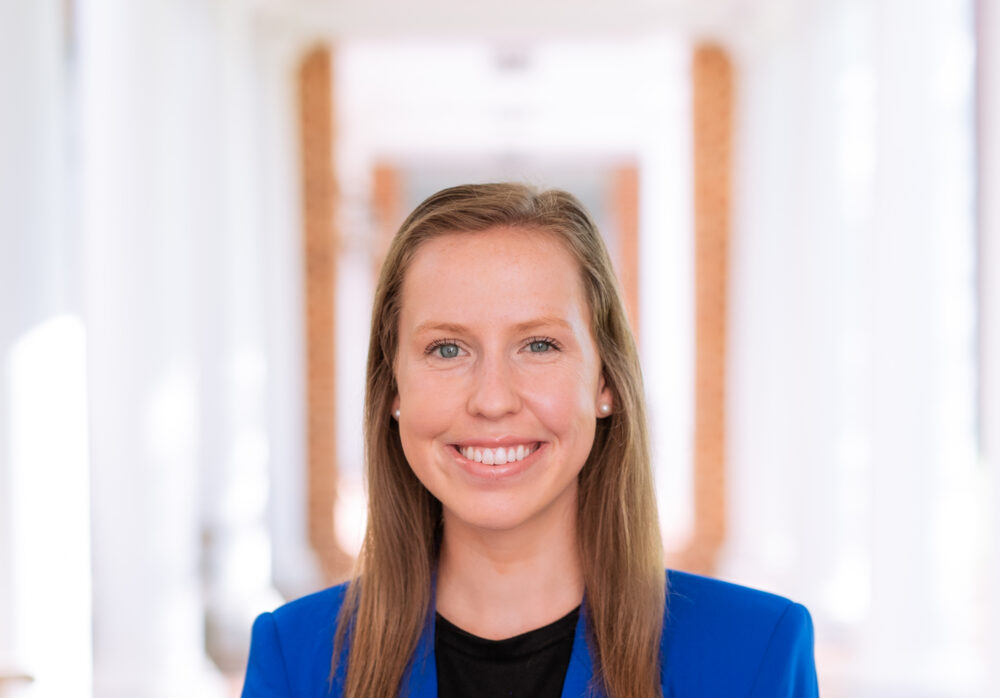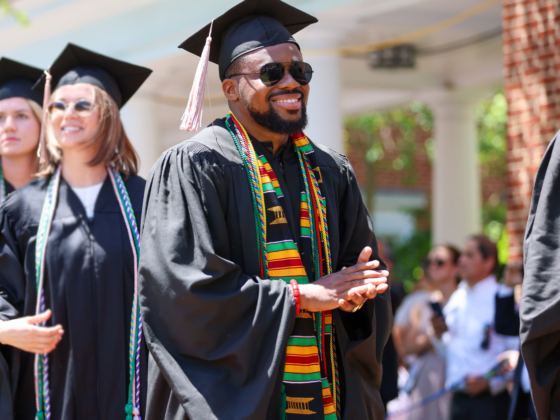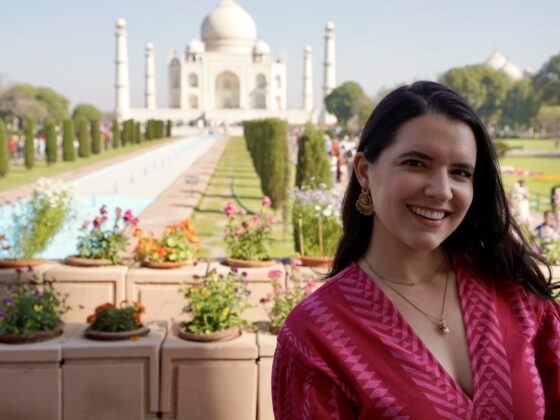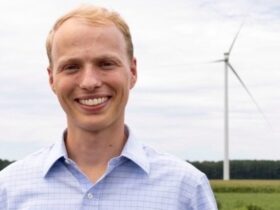[The following interview has been condensed for this blog series by Meredith Barnes.]
Rebecca Gullickson is a second-year MBA candidate (Class of ’25). Prior to Darden, she spent four years as a consultant supporting projects for federal clients at the intersection of technology, strategy, and finance. After graduating, Rebecca plans to return to consulting at Deloitte. Recently, she shared more about her fall Argentina Darden Worldwide Course (DWC).
1) Could you start by sharing a bit about yourself and providing an overview of your personal and professional background?
I say I am from Augusta, GA since I lived there the longest as a child and graduated high school there, but I was an Army brat who moved around given my father’s career. Growing up, my father was deployed overseas many times and when he would come home, we would typically go to Disney World as a family. It is a favorite childhood memory of mine, and my favorite park was Epcot. I loved Epcot because I was able to learn about different cultures and try the different cuisines all in a matter of minutes. This led me to have an interest to someday travel abroad to different places and to work for Disney at some point in my life.
Fast forward to college where I attended Virginia Tech, and I got to live out a childhood dream of working at Disney as an industrial engineering intern. In this role, I was essentially an internal consultant, which exposed me to wanting to pursue consulting after graduating college. This led me to Deloitte in Atlanta for a full-time post-graduation position.
After college I spent four years as a consultant but still had not fulfilled my desire to travel abroad. Therefore, when I got the opportunity to go to business school and was looking into programs, one big selling factor for me was DWCs at Darden. Prior to coming on-grounds, I had been excited to do a DWC and have the experience of going abroad and learning about another country and culture.
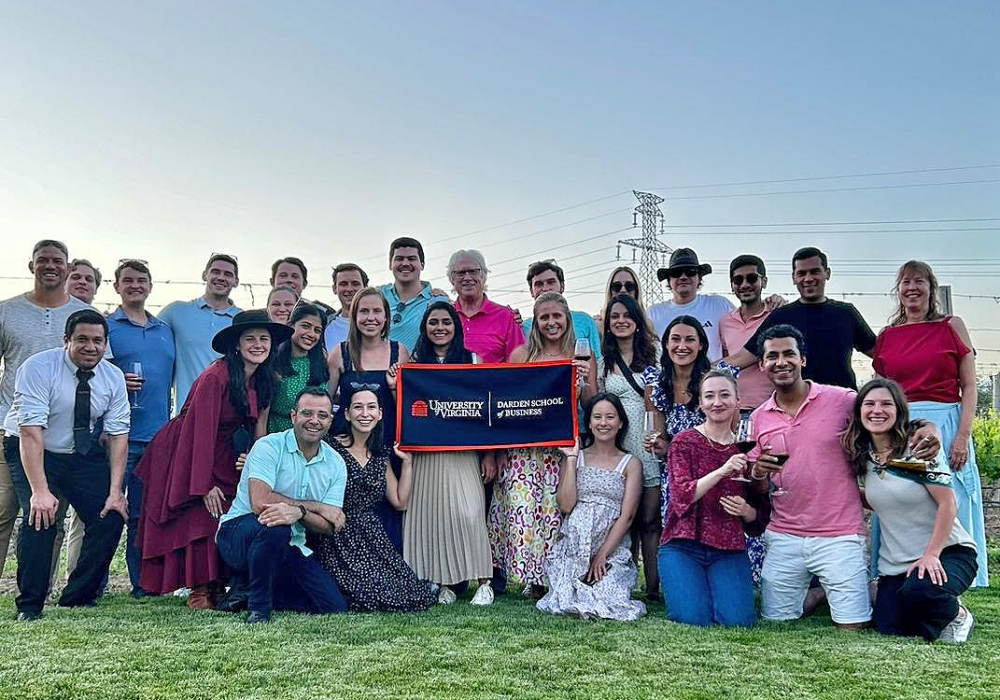
2) How did your expectations for the course compare to what you ultimately learned in Argentina?
Leading up to the Argentina DWC, my cohort learned a lot from our professor (Robert Carraway) who had been to Argentina many times, as well as from our program coordinators in Argentina. We got a general overview of the history, uncertainty in business, and political landscape within the country. Even though going into it, I knew that Argentina’s economy was vastly different and extremely uncertain compared to the U.S., I did not truly understand until getting to Argentina.
Once in the country, I could easily see how the uncertain economy shaped how business was done. In the U.S., we pay with credit cards for most items and typically never have cash on hand. However, in Argentina, given the changes in prices due to high inflation along with the blue market [Argentina’s unofficial currency exchange], it was preferable to pay in cash. Throughout the week, as these subtle differences were noticed between the U.S. and Argentina, I grew immensely in my understanding of how challenging it is to do business in an economy that is vastly uncertain.
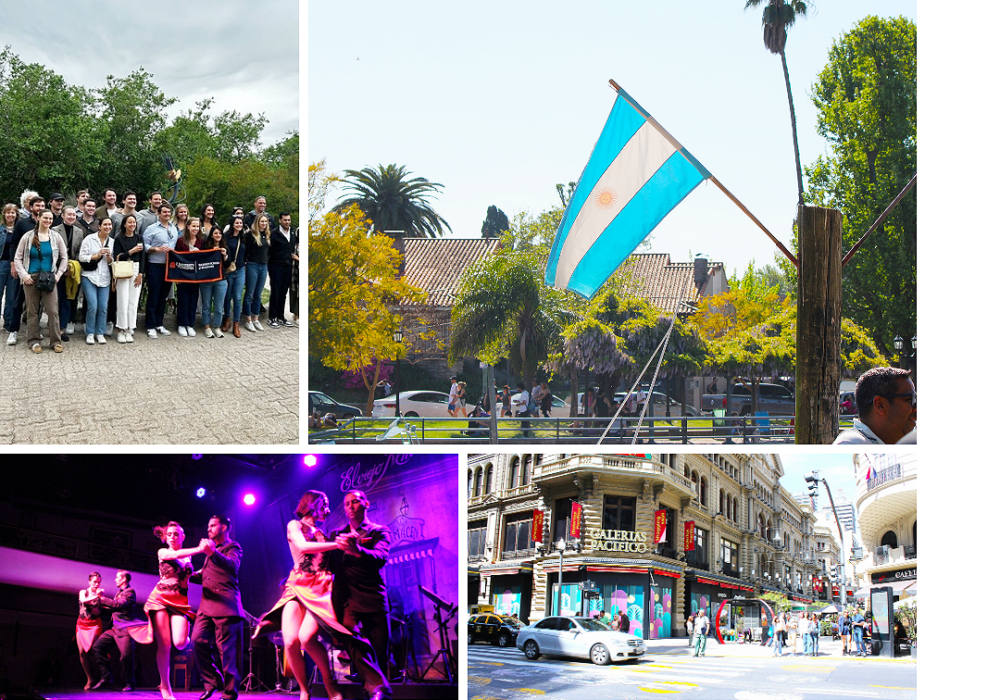
3) What was your favorite cultural experience in Argentina? What made it so memorable?
Before going to Argentina, three of the things you think of are steak, wine, and the tango. I got to experience all three while there. But my favorite experience was getting to go to Don Julio’s in Buenos Aires. Don Julio’s is a Michelin-starred restaurant and steakhouse that happens to be ranked as one of the best restaurants in the world and maybe the best steakhouse in the world. I enjoy a good steak and a nice restaurant. The experience of getting to do something like that is so much fun for me. Therefore, when I got to do this in Buenos Aires along with a great group of Darden friends, it made it very memorable. To add, this was the best steak I’ve ever had.
4) What insights did you gain about Argentina’s economy and its impact on the business landscape?
As we went on facility tours and had briefings with business leaders in Argentina, the terms that continued to come up were uncertainty and inflation. Given how much inflation has occurred within Argentina coupled by how frequent and drastic this inflation is, businesses must make it part of normal protocol to expect uncertainty. Therefore, it makes it challenging to negotiate terms with suppliers and requires flexibility from all stakeholders. I had heard about the crazy inflation prior to going to Argentina but did not understand the true impact it has on everyday business until meeting with business leaders there. There was a subtle understanding that in the environment down there, you must be agile, or you will not be able to survive.
5) Reflecting on your experience, what advice would you give to future students choosing Argentina for their Darden Worldwide Course?
Argentina is a unique country to visit given the uncertainty in business and political history. It used to be one of the wealthiest countries in the world in the early 20th century but now lags behind. However, Argentina still produces a vast amount of wine, steak, and energy resources. Additionally, Argentina has a rich culture and history. Given these factors and the ability to travel to both Buenos Aires (a large city) and Mendoza (think of a bigger, South American version of Charlottesville), it makes for an unbelievable DWC.
